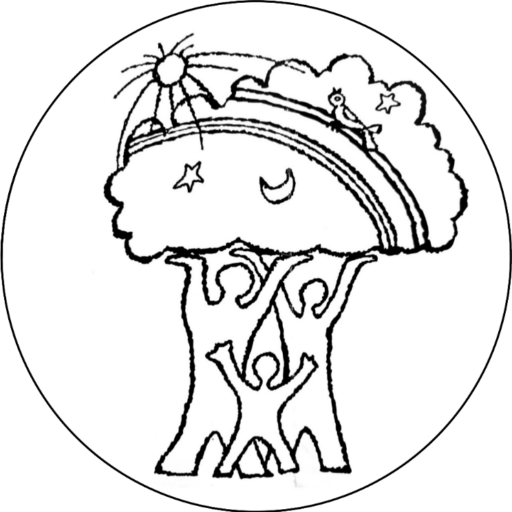Pranati Deshpande
Parenting is a tough job. And for exceeding in any job, what do we need? Skills. Yes, parenting is a skill and an art. Society thinks that it is a natural process. But according to research, it is both – it comes naturally to us, and it is in our hands to put in efforts to develop it.
When I talk to parents, the first doubt they have is – am I a good parent? Now there is no right or wrong answer to it. It all depends on how good we know ourselves first. It is one of the most important prerequisites of being a parent.
Did we think about it before becoming parents? Some of us might have, most of us did not. For most of the population, parenting just happens.
Hence, the first important skill is digging deep and asking ourselves – ‘who am I and what am I doing?’, because these answers are going to play a significant role in preparing us to be a mindful and proactive parent. And that’s exactly what we ideally want, right? To become the best parent in the world!
(As parents, we grow with our children. We are the same age as our child!
When we see our child/children in their developing and growing stage – their actions and behaviours, we feel so many things on the emotional spectrum. Right from happy, sad, frustrated, disappointed and well, even hopeless! If a situation goes out of hand at times, we tend to automatically compare our child/children with either us or others. Many times, our mind takes us back to our own childhood and we recollect our experiences with our parents. Now this is extremely important – to go back, sit with our experiences and reflect on those times! Why, you might ask, because history precedes itself, meaning the present is heavily influenced by the past. And we tend to repeat what we have seen or know best – these become our belief and value systems. Our actions and decisions come from what has been stored in our subconscious right from our childhood.
Many times when I talk with parents and we discuss their parenting journey and process, they say that “unknowingly I behave in a very different way than what I had in my mind” or “I behaved just like my mother/father/guardian/relative” or “I failed as a parent/am I even a good parent?”.
Also, some of us might not have the best/positive/healthy experiences during childhood which is all the more overwhelming to process. I hear and see the hurt, the guilt and the regret when this happens. It creates a doubt in our minds – Am I a bad parent and does my child even love me?
The answer is no, you are not a bad parent and yes your child does love you!
Each parent has a subjective and unique approach when interacting with their child.)
Just last month, I was meeting with a parent and she was extremely stressed about her son’s behaviour in the school. The child’s teacher complained that he was leaving his homework incomplete, was not eating his meals properly, zoning out when the teachers were teaching and refusing to attend his music class. The meeting took place where the teacher said “your son has become very stubborn and just does not listen.” Now the mother who attended the meeting was confused, because she knew that her son loved going to school, was good at studies and had never displayed this kind of behaviour. He was also enthusiastic about singing and also took training from his maternal grandmother in classical singing. So now all of a sudden why this change in his behaviour. So we started talking about what must have happened, has he shared anything about it. Finally, we decided that the mother will have a heart to heart conversation with the son. We got to know that a few days back when he was doing his riyaaz, his father came out of nowhere and scolded him saying “I am attending an important meeting, don’t you understand. Stop this nonsense, go study quietly or else I will not buy you the smart watch.” The child told this to his mother crying that this was a regular thing in the house as his father would work from home and the mother from office.
Now imagine how hurt, angry, disappointed, helpless the child must have felt in that moment – firstly, he was asked to stop his favourite activity, secondly, he was not prepared to face his father’s anger as it was sudden without any warning signs, thirdly, the alternative that his father gave “to study” was not something that he wanted to do at that moment, fourthly, he was not going to get the smart watch that he was promised.
This one incident, which we might think of as a common happening in households, can impact a child so much that he loses interest in his favourite things, his appetite gets impacted and it affects his attention and concentration in the school. At home, his activities are seen as secondary/not important, he is not given space to process the father’s scolding, he is not given the time to respond to his father and if he doesn’t behave as his father’s demands he is not worth getting the reward (smart watch).
In other words, these are very well the basic and commonest symptoms of multiple mental health conditions.
Now here, the child’s grandmother taught him singing, so music is in his genes. He also enjoys it as an activity. But according to one of the oldest theories “Nature versus Nurture”, even if a child has a certain characteristic/trait bestowed upon them by nature (hereditarily), does not necessarily mean that they will excel at it. Why?
Because the kind of conducive environment needed for developing, encouraging a certain characteristic was not provided. This is Nurture.
For a child to excel at something, the nature (genetic disposition) as well as the nurture (environmental influences created by the parents/guardians/peers/society etc.) play a significant role. The theory is controversial, we do not know what plays a more important role – nature or nurture. But we can only focus on the one that we have control over which is Nurture.
In this case, not only nature vs nurture was a factor but also the way the father interacted with his son.
Here we go back to the parenting style typologies introduced by Diana Baumrind in the 1960s. She was a developmental psychologist at the Institute of Human Development, University of California, Berkeley, who pioneered research in child development, especially parenting styles. She worked with children and parents individually as well as them as a collective unit for many years ; and went on to introduce 3 types of parenting styles to describe typical parenting behaviours and patterns.
Later on, the perspective was expanded by Stanford researchers JJ Maccoby and JA Martin and they added 1 more style to the list.
- Authoritarian : The “Because I said so!” kind of parenting. This can be a result of that parent growing up with dictatorial and overbearing parents. Such parents value rules and obedience as the utmost kind of discipline and pay less attention to the child’s needs, wants and challenges. This unfortunately leaves no room for the child to process, accept and interpret the behaviours of their parents. In the case mentioned above, the son underwent this behaviour from his father – he was asked to oblige/obey or else he will be punished. The father failed to see his son as a human, respect his wants and threatened to take away something that he had promised him. The approach used by the parent, here, can have a damaging impact on the son – that his father’s love towards him is based on conditions.
- Authoritative : Now it can become difficult to strike a balance – respecting a child’s wants but also making sure to set limits and putting reasonable conditions for a favourable outcome. In this case, had the father said “son, I am in an important meeting right now, can you please do some other activity for 1 hour so that I can focus on my work and then you can continue with your riyaaz and I will not disturb you”, then the case would have turned completely. By doing this, the father could have set a rule asking his son to respect and abide by, but at the same time also support his son by creating an emotionally conducive environment leading to gaining trust from him. The father could have been firm yet nurturing. Now this parenting style known as the Authoritative style is considered as most beneficial and democratic out of all the styles. It helps create a judgement free and holds a safe space for the child to understand what’s happening around them, take time to process it and regulate their emotions healthily. It also showcases that the parents’ love is unconditional and also the child can also gain the correct guidance from the parent, if needed, as it relies heavily on being supportive than punitive.
- Permissive : Many times parents that I meet say that their child is over-demanding or wants things (mostly materialistically) instantly and cries if we do not tend to them in the moment. Here we always engage in reflection and introspection – how are we dealing with a child’s wants/demands and how was it during my childhood?
The answer that we also derive is that in order to avoid the tantrums or keep the child distracted we just give the child what he/she wants. And also during our childhood, we were deprived of the things that we demanded and were given those only during special occasions.
Now this parenting style is called Permissive parenting, where the parents let the child be the master and do whatever they want! This behaviour in parents usually stems from being raised in Authoritarian households where they did not have a say in anything. Parents who grew up in toxic households are often seen to implement this strategy as they want their child to have the ultimate freedom without any rules.
Being responsive to a child’s needs and demands is good, but it shows the child that rules are not to be followed and they can get anything by being rebellious and defiant.
- Neglectful : When I work with parents coming from dysfunctional families, I often find this kind of parenting in the households. It is called Neglectful parenting. This parenting style comes from being brought up in households which faced difficulties and challenges – poverty, health conditions to one or both parents, abuse in the households etc. It stems from not having enough resources leading to being little to no involvement in the child’s development and life, even. The child is left to take care and attend to his/her own needs by themselves. The psychological impact of this kind of parenting is serious and most harmful in the long run.
When I meet with children and teenagers and they say “my parents will never understand me” or “there’s no use sharing this with my parents because I know their reaction” or “I am a bad son/daughter anyway”, it breaks my heart, because the precious bond is getting strained somewhere. So all we can do as humans is really look deep into ourselves, understand our roots and dynamics that we shared with our parents.
The more questions we ask ourselves, understand our patterns and love ourselves, the more love & support we will be able to give our children. No one can be a perfect parent, let us just try to be a real one!
Pranati Deshpande
pranati.deshpande@gmail.com

Working as a psychologist at Amazon and Fitter Fly, her areas of expertise include workplace violence prevention, clinical psychology work with children and adults.
